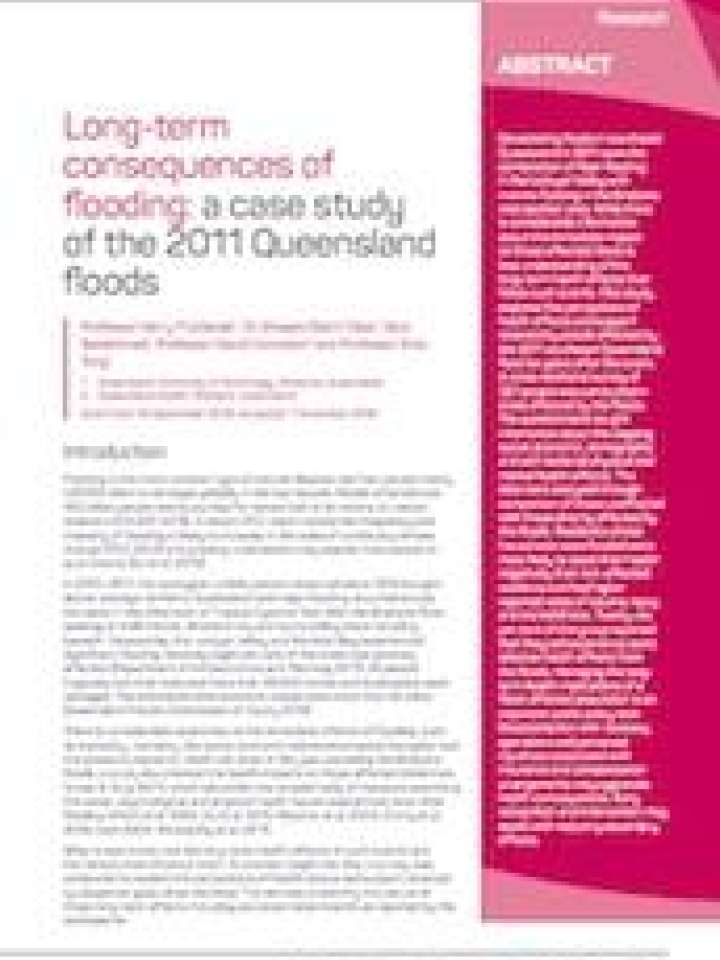Long-term consequences of flooding: A case study of the 2011 Queensland floods
This study explores the perceptions of health effects and support received by people affected by the 2011 southeast Queensland flood six years after the event.
Researchers conducted a cross-sectional survey of 327 people in flood-affected areas. The questionnaire sought information about the ongoing social, economic, demographic and self-declared physical and mental health effects. The data were analysed through comparison of those unaffected with those directly affected. Residents whose households were flooded were more likely to score their health negatively than non-affected residents, and had higher reported rates of trauma, injury and mental illness. 26 per cent of this group reported that they still experience some adverse health effects from the floods.
The study establishes that managing the long-term health implications of a flood-affected population is an important public policy task. Dissatisfaction with recovery operations and perceived injustices associated with insurance and compensation arrangements may aggravate health consequences. Early recognition and intervention may assist with reducing secondary effects.
Explore further
